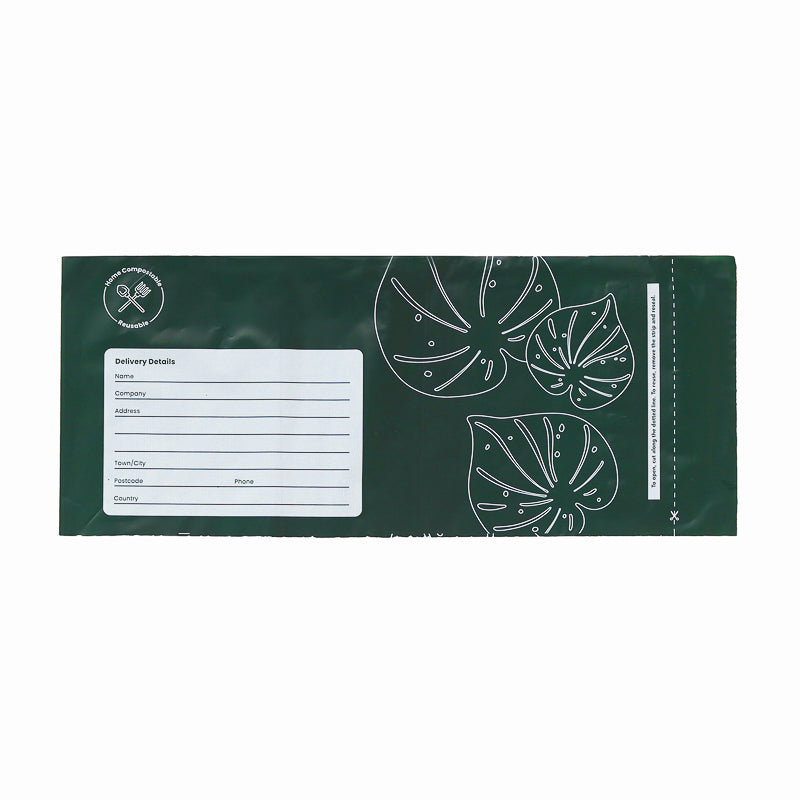
Ecopack Compostable Resealable Courier Bags DLE (1 Pack/100 Bags)
Are you contributing to the plastic problem by using traditional plastic courier bags that are then sent to landfill to sit for hundreds of years? Here's an alternative - Ecopack compostable resealable courier bags are 100% biodegradable, contain corn starch, and printed with non-toxic inks.
These bags have a silky feel and a rich green colour that enhance the luxury of your product while being eco-friendly.
They also come with two adhesive strips so customers can reuse them (Use strip furthest away from the mailer opening first)
DLE Size: 135mm w x 240mm h + 70mm (flap)
Bags per pack: 100


- Product Specs
- FAQs
These courier bags have been designed to replace traditional plastic postal satchels. They contain corn starch, PLA and PBAT, and are printed with non-toxic inks. 100% biodegradable and certified for home and commercial composting.
Our compostable courier bags feature a second line of seal making them reusable and extending their life before they hit the compost heap.
If you are a commercial business or council, requiring larger volumes, please contact our team to discuss. Minimum order quantity (MOQ) for custom branding is 10,000 bags.
Recommended shelf life of 12 months.
✓ Certified by Australasian Bioplastics Association to the Commercial Composting Standard AS 4736 (Certificate # ABAP 10113)
✓ Certified by Australasian Bioplastics Association to the Home Composting Standard AS 5810 (Certificate # ABAP 20047)
Size: 150mm(w) x 260mm(h) + 60mm(flap)
Quantity per pack: 100
Can compostable courier bags be composted at home?
Yes, Ecopack compostable resealable courier bags are both home and commercially compostable. Please remember to remove labels and seal as these added components may not be biodegradable.
Certification standards achieved:
Australian Bioplastic Association AS4736-2006 (industrial/commercial)
Australian Bioplastic Association AS5810-2010 (home)
How long will they take to decompose in the compost pile?
Compostable bags take approximately 90-180 days to decompose depending on the composting environment. Industrial composting is typically quicker than home composting for two main reasons:
1) temperatures reached inside a home composting bin is usually only a few centigrade degrees higher than the outside temperature, and this is true for short time periods (in industrial composting, the temperatures reach 50°C – with peaks of 60-70°C – for a number of months).
2) home composting bins are managed by everyday people and the composting conditions might not always be ideal (in contrast, industrial composting plants are managed by qualified personnel and kept under ideal working conditions).







